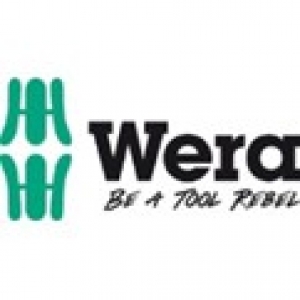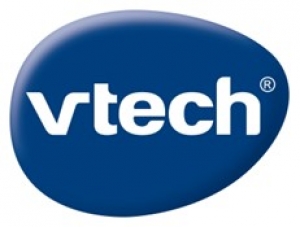Refine your search
Chris Potter
The experience gap problem in insurance recruitment
Over the last 12 to 18 months, the insurance recruitment market has quietly shifted.
On paper, there are more candidates available than there were during the height of the war for talent. CV flow is healthier, LinkedIn response rates are up, and many firms report that hiring feels “easier” than it did in 2022 or 2023.
And yet, many senior leaders tell us the same thing: “We’re hiring people, but it’s still not quite working.”
The issue is no longer volume. It is judgement.
Experience is not the same as capability
One of the biggest challenges facing insurance firms in 2026 is not finding people with experience on paper, but finding people who can genuinely handle complexity.
There is now a noticeable gap between:
- individuals who have worked in insurance for a number of years
and
- individuals who can independently manage difficult renewals, complex programmes, demanding clients, or internal pressure from boards, PE partners, or insurers
Tenure alone is no longer a reliable indicator of capability.
We regularly see candidates with impressive CVs who have spent most of their careers operating within highly supported, process-heavy environments. When placed into more exposed roles, without layers of safety nets, cracks begin to show very quickly.
Why some roles keep being rehired
A pattern we see increasingly is firms rehiring the same role every 12 to 24 months.
On the surface, this looks like a retention issue. In reality, it is often a hiring accuracy issue.
The wrong hire does not always fail loudly. More often, they cope. They keep the plates spinning, rely heavily on colleagues, and avoid situations that require firm judgement or difficult conversations. The business carries the risk quietly, until client dissatisfaction, internal frustration, or burnout brings matters to a head.
When the replacement hire is made using the same criteria as the last one, the cycle repeats.
The shortage that really matters
The real shortage in today’s market is not people who can do insurance tasks. It is people who can be trusted with insurance decisions.
Judgement is built through exposure to complexity, accountability for outcomes, and time spent handling situations that do not have clean answers. It cannot be fast-tracked, and it does not always correlate with job titles.
This is why many firms feel they have “plenty of candidates”, yet still struggle to strengthen their business in a meaningful way through hiring.
What this means for employers
In 2026, the most successful hires are coming from businesses that:
- look beyond CVs and probe how candidates have handled pressure, failure, and ambiguity
- are clear on whether a role genuinely requires judgement or is more execution-led
- accept that the right hire may not be the most obvious or the quickest to appoint
It also means being honest internally about what support exists. A role that works well in a large, structured broker may require a very different individual in an independent or growth-focused firm.
How we see our role
At Cavendish Maine, our focus has always been on quality of judgement rather than quantity of CVs.
Our conversations with candidates go well beyond roles and salaries. We spend time understanding what people have truly been responsible for, where they have been stretched, and where they have been protected.
Equally, we work closely with clients to sense-check whether a hiring brief matches the reality of the role, rather than the idealised version of it.
In a market where experience is plentiful but judgement is scarce, getting this right matters more than ever.
If you would like to discuss how this applies to your current or future hiring plans, we are always happy to have a confidential, exploratory conversation.
Business Manager
I had the pleasure of working with Cavendish Maine during my job search and I can't recommend them highly enough. Incredibly professional, assertive, and supported me through every step of landing the role. Always provided clear communication between myself and my now employer and I am now in a position I’m truly excited about.
Sales Manager
Absolutely 100% professional. For anyone in need of assistance, I cannot recommend a better company to be in contact with. Quick to respond, roles suited, regular updates etc all come as standard.
Area Sales Manager
Highly recommend Cavendish Maine, very good communication throughout, very professional and gave great advice. Thanks!
Sales Manager
Cavendish Maine was great to deal with massive help with helping me obtain my new role in Teng Tools. I would 100% recommend Cavendish Maine if you’re looking for a career move.
National Account Manager
I was recommended to use Cavendish Maine and I will absolutely do the same for the future. I would say to any company out there looking for a professional recruitment agency who values their clients, the team at Cavendish Maine is the one!! Thank you again for finding me the most amazing job within a few weeks of the start of my search.
Area Sales Executive
It was an absolute pleasure dealing with Cavendish Maine. From our first conversation, they demonstrated exceptional attentiveness, communication was brilliant; and they kept me informed every step of the way.
Business Development Manager
The team at Cavendish Maine, always kept me well informed along the way with my search for a new role. They have a wealth of experience and a grounded friendly but always professional approach. I would highly recommend speaking with Cavendish Maine to assist you on your career search.
Introduction
At a time when the UK labour market remains tight but uncertain, employee attitudes are shifting in notable ways. Cavendish Maine’s latest observations suggest that professionals across sectors are becoming more risk-averse in their career decisions. Understanding this change is vital for employers seeking to attract and retain talent in an increasingly cautious environment.
Security Over Risk
Recent data suggests that employees are increasingly reluctant to change roles, even when new opportunities offer higher pay or improved conditions. The fear of “last in, first out” during potential restructuring, coupled with concerns about probation periods and job stability, is leading to a more cautious workforce. For many, the perceived safety of a known employer outweighs the potential rewards of a new position.
The Impact on Employers
For employers, this presents a double-edged sword. On one hand, greater employee retention can provide welcome stability. On the other, businesses seeking to attract new talent are finding it harder to tempt skilled professionals away from their current roles. Traditional incentives — salary increases, bonuses, or flexible working — are proving less effective when candidates’ primary concern is long-term security.
A New Employer Challenge
This trend places a new responsibility on employers: to communicate not only opportunity, but stability. Organisations that can demonstrate financial resilience, clear business direction, and a culture of long-term investment in their people will stand out in this cautious market. In short, ambition hasn’t disappeared — it’s simply been tempered by pragmatism. For now, job security is the new career currency, and employers must adapt their talent strategies accordingly.
Call to Action
If your organisation is finding it difficult to attract or retain talent in the current climate, now is the time to reassess how you communicate stability and long-term opportunity. Get in touch with our team to discuss how we can help you strengthen your employer brand and recruitment strategy in today’s changing market.
National Accounts Manager
Cavendish Maine recently helped me secure the perfect new role, and I genuinely appreciate all the time, effort, and support provided throughout the process. From our first conversation to the final offer, everything was seamless — they kept me informed at every stage, offered valuable advice, and made the entire experience smooth and stress-free.










